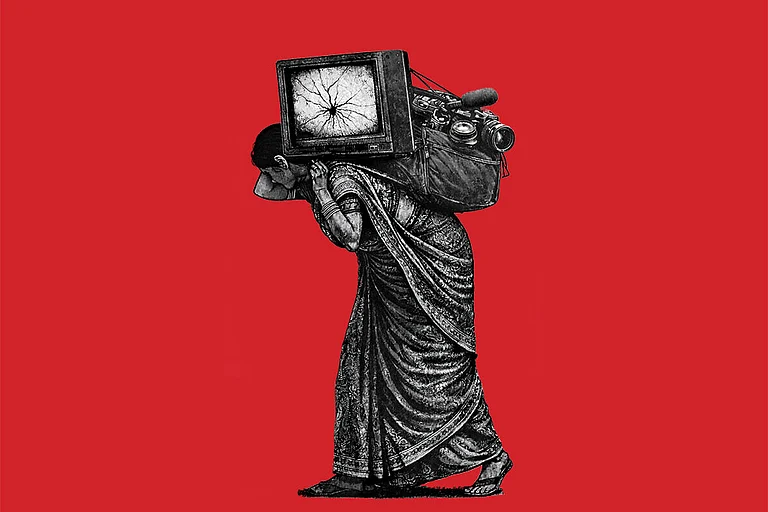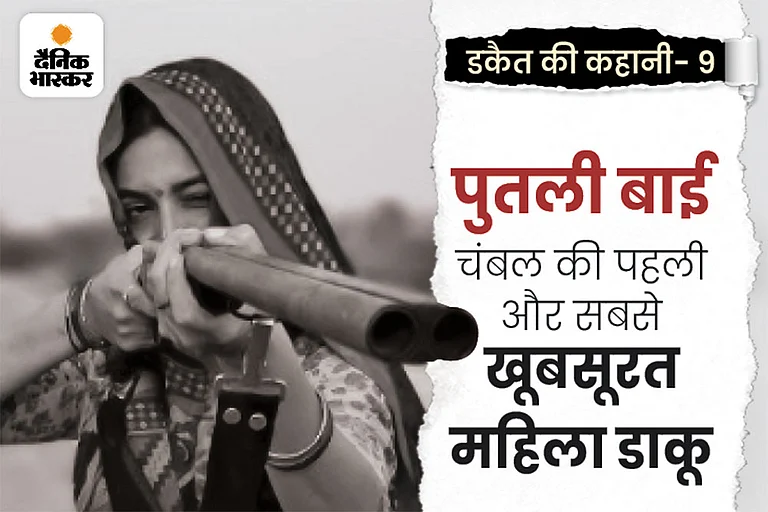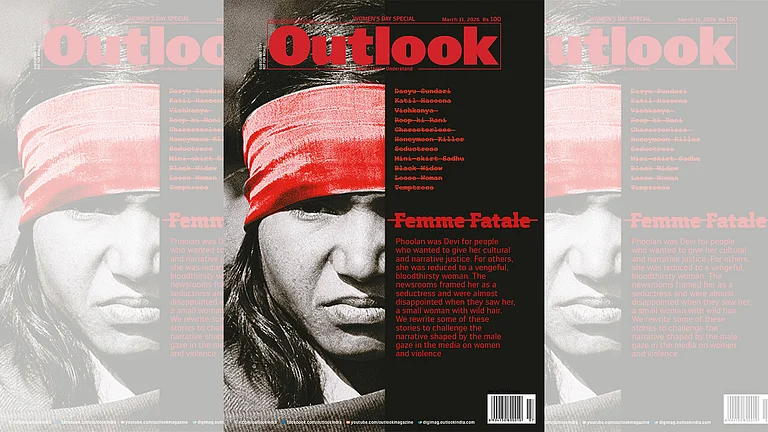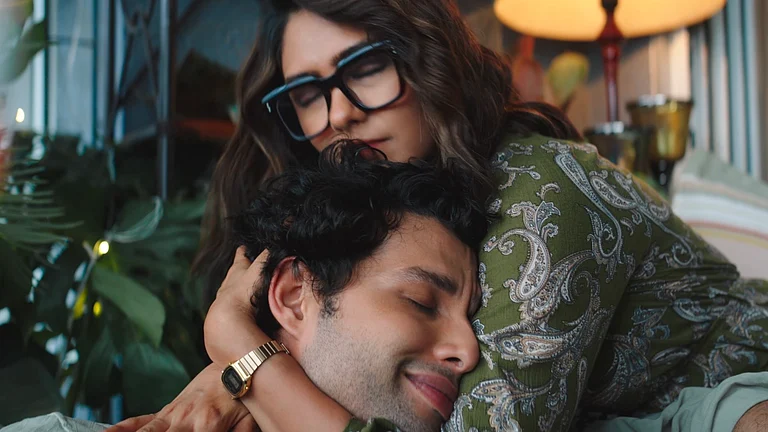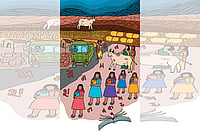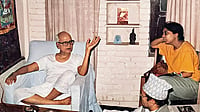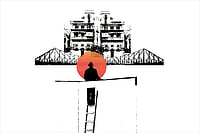In Gulf, Mo Ogrodnik does what only a debut novelist of fierce moral clarity and cinematic instinct could attempt—she plunges headlong into the fissures of contemporary womanhood stretched across the blazing, glittering mirage of the Arabian Peninsula. But Ogrodnik is not interested in spectacle. She focuses on the daily, the domestic, the detritus of women’s lives caught in systems designed to erase them. Her goal is to render the macro through the micro—each woman’s torn veil, blistered foot, confiscated phone, and unspoken rage becomes its own epic.
This is not a novel about a place, although it is indelibly rooted in one. It is a story about rupture—the gulf between power and powerlessness, employer and worker, ambition and confinement, and perhaps most poignantly, the gulf within each woman. The novel’s power lies not in a singular narrative arc but in the dissonant harmony of its five interlinked stories. The “quintet structure” Ogrodnik employs is not simply formal—it is feminist. Rejecting linearity, it embraces simultaneity, contradiction, and accumulation. In this, Gulf belongs on the shelf beside Claudia Rankine’s Citizen, Michael Ondaatje’s Billy the Kid, and W.G. Sebald’s Austerlitz. It is a literary collage, a film reel spliced from trauma, resistance, and fugitive hope.
Dounia. Flora. Zeinah. Justine. Eskedare. Each a world. Each a woman bearing the weight of geopolitical histories in her womb, her suitcase, her silence. Dounia, a Saudi woman displaced within her own country, shuffles barefoot through the halls of a sterile mansion in Ras al-Khair, her educated mind dimmed by patriarchal opulence and grief. Flora, a Filipina domestic worker, carries the unburied ghost of her son and must mother another woman’s child under the cruel edicts of the kafala system. Zeinah, a Syrian girl married into ISIS, is not simply a victim of extremism but a tragic proof of the bargains women make with terror to ensure survival.
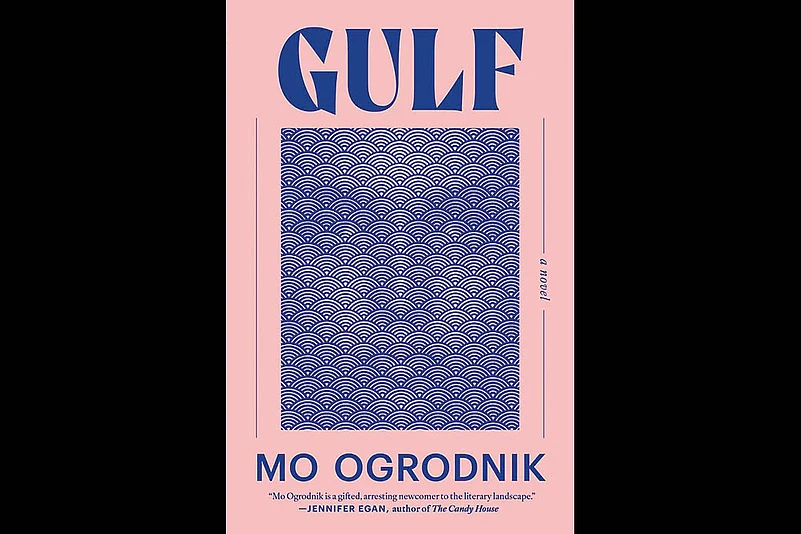
Then there is Justine, an American curator whose expatriate privilege blinds her to the vortex she enters, and Eskedare, an Ethiopian teen navigating the hellish corridors of underworld labour markets. Their encounter—brief, brutal, and oddly redemptive—is one of the novel’s most searing cuts. In the hands of a lesser writer, this collision of stories might have devolved into didacticism. But Ogrodnik allows each woman her mystery, her contradictions, her full uncontainable self.
The violence in Gulf is not abstract. It is intimate. It comes through everyday objects turned into weapons—an iron, a bottle of bleach, a kitchen knife. This intimacy, as Ogrodnik reveals, is the real horror: the employer’s hand pouring boiling water over a maid’s back, the mother’s hand tightening into a fist. The home, often romanticised as a sanctuary, is the primary battleground here. The state is implicit. The man is often absent. The war is woman to woman.
Ogrodnik’s own journey—her immersion in court documents, shelters, police reports; her conversations with trafficked girls in Ethiopia and domestic workers in Manila—pours through each scene, but never with the exploitative gaze of the voyeur. Her training in film is evident, but so is her resistance to narrative simplification. She tells us what she does not want to know. What she cannot unknow.
And yet, amidst the wreckage, Ogrodnik never abandons her characters to despair. This is not a novel about victimhood. It is a novel about women becoming—sometimes through pain, sometimes through vengeance, sometimes through the smallest, most radiant acts of refusal.
Flora’s refrain, “hope is a rebel,” becomes the novel’s subterranean drumbeat. A borrowed ring, an orange peeled in the dark, a falcon in a museum—these are not metaphors, but talismans, portals to connection. Ogrodnik does not manufacture sisterhood. She excavates it—raw, hidden, spectral. The “gulf” is not just geographic or social; it is the distance between women and the painful, luminous work of trying to cross it.
Ogrodnik ends her own commentary with an arresting image: laying out chapters on the floor like film scenes, measuring the “throw” from one woman’s ending to the next. It is a technique rooted in montage, but also in mourning. Like Chris Marker’s film Sans Soleil, Gulf is a meditation on memory, movement, and the unspeakable.
The writing is often lyrical, even when the scenes are grim. Sentences curl like incense smoke around broken bodies and burning fields. There are moments where the prose veers toward the cinematic at the expense of psychological depth, but these are fleeting. Overall, the book achieves what few first novels do—it leaves a residue. You carry it. Like sand in the shoes. Like grief beneath the tongue.
In Gulf, Ogrodnik has delivered not only a harrowing account of contemporary womanhood but also a new model for how novels might reckon with the global crises of labour, migration, and female agency. Her book belongs in classrooms, in human rights archives, on nightstands. It is not a comfortable read. But it is a necessary one. This is fiction as invocation, as exorcism, as protest. This is the kind of book women pass to each other in silence, across borders, across time.
And we are changed.
And we are seen.
Ruchira Gupta is an Emmy-winning documentarian, NYU professor & author of The Freedom Seeker & I Kick and I fly








